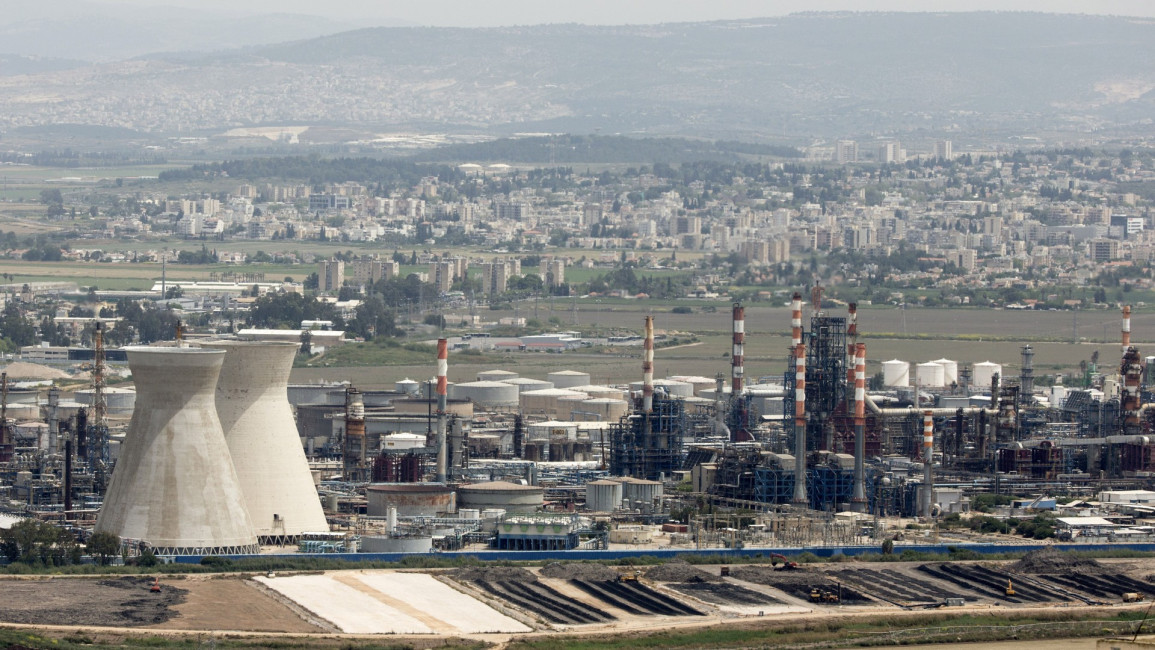Beirut explosion a 'wake-up call' for oil, chemical facilities in Israel's Haifa, warns mayor
A colossal blast rocked the Lebanese capital on Tuesday evening, killing at least 135 people and wounding thousands more.
Authorities say the incident occurred after a fire at the Lebanon's primary port reached a warehouse storing more than 2,700 tonnes of ammonium nitrate, a highly combustible fertiliser kept there since 2014.
Haifa, Israel's third largest city, boasts the country's largest industrial area, according to The Times of Israel. The Haifa Bay has two ports and over 60 industrial plants, including oil refineries, processing factories, power plants and storage facilities.
Major roads that cross into the area are used by hundreds of thousands of people every day.
After presenting her condolences to the people of Beirut, Haifa mayor Einat Kalish-Rotem said a similar disaster could take place in the Israeli city.
|
Following the Beirut explosion, Israel's Minister of Environmental Protection Gila Gamliel pledged to remove facilities operated by the BAZAN Group, a major Israeli oil company, from Haifa within a few years.
Ayman Odeh, head of the Arab Joint List party, tweeted that Israel must "learn lessons immediately" from the Beirut blast and "clean the Haifa Bay of refineries".
"This is an immediate danger to our lives and those of our children," he said.
Multiple industrial accidents have taken place in Haifa Bay over the years, according to The Times of Israel.
In 2016, the BAZAN Group was fined 1.2 million shekels ($335,000) for negligence, pollution and a violation of permits after a massive fire broke out at an oil refinery facility.
On the day of the Beirut explosion, the Haifa District Court was debating whether to accept a class action lawsuit against 30 factories in the Haifa Bay, the Israeli daily reported.
The lawsuit charged the factories with negligence and violations of Israel's Clean Air Act, allegedly causing high rates of non-Hodgkin's lymphoma and lung cancer in the region.
"Yesterday we received a wake up call from Beirut," wrote Kalish-Rotem. "A yellow card which reminded us of the bottom line: there is no room for hazardous materials and polluting factories within the urban space and the population."
The explosion in Beirut has caused significant damage to a city already devastated by an economic crisis that has plunged thousands into poverty.
Videos showed a large fire at the port before the blast erupted, creating a black mushroom cloud and leaving behind a tall pillar of orange-tinted smoke.
In addition to the scores of deaths and over 4,000 injured, hundreds more are missing, with relatives and friends posting desperate pleas for their whereabouts on Facebook and Instagram.
As many as 300,000 people have been made homeless, Beirut's governor said.
Though both countries are still technically at war, Israeli Prime Minister Benjamin Netanyahu offered humanitarian aid to Lebanon via the United Nations.
Multiple Lebanese social media users have rejected the overtures from Israel due to its continued occupation of the Palestinian territories and devastating interventions in Lebanon.
Follow us on Facebook, Twitter and Instagram to stay connected



